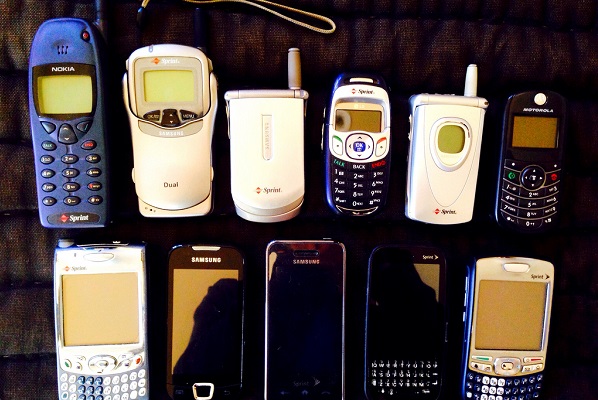Facebook made a surprising announcement at the beginning of this month that made everyone do a triple take – 100% of their 15 million monthly users in Nigeria and South Africa are active on mobile.
But is that really a surprise? As at last year, there were more mobile devices in the world than human beings. Currently, mobile phone penetration in Africa is at 67%. That’s 67% of almost a billion people. Compare this with a reported 4.5% penetration of consumer personal computers and it’s no wonder mobile phones are the in-thing.
But how long will this continue? Is this just a phase? Perhaps the usual sinusoidal pattern of trends that grace the tech scene? There are several realities that say otherwise.
As mobile adoption continues to rise, more and more brands are leveraging the trend to bolster their business. The early adopter’s ship has already sailed. The few businesses and brands that were on that ship were the ones who showcased to the world, that the benefits mobile presented were nothing to be scoffed at. Eventually the rest caught up and what we have now is a critical mass and the ripple effect is being felt all across the world.
This ripple effect has yielded another trend that should not be ignored – businesses have begun reconstructing their entire business models around mobile.
Across the board, categories like Gaming, Messaging and Education already have thriving businesses that are exclusively available via mobile.
In June, Konami (popularly known for their Pro Evolution Soccer and Metal Gear Solid series), announced the company’s shift from Console and PC to mobile.
In ecommerce, Flipkart and Myntra are just two examples out of a growing list that have decided to channel their business efforts exclusively through a mobile channel. Who can blame them? Mobile devices accounted for 95 percent of Myntra’s Internet traffic, and over 70 percent of sales, just before the move.
In finance, the success of the mobile money scheme in Kenya and the way Bitcoin is disrupting the international money transfer market has been newsworthy. Mobile money has enabled more Africans to engage with financial services which were before now, inaccessible to them. Startups like M-Pesa and BitPesa currently thrive on the proliferation of mobile phones in the region.
Presently, “Mobile first vs Web first” is now a real discussion in the tech ecosystem. I could go on.
When you think of it, the logic is sound. Mobile apps allow the customer to spend more time with the brand, thereby fostering better relationships. Better relationship fosters brand loyalty. Loyalty improves revenue. Revenue helps you stay in business.
All businesses may not eventually go the mobile-only route, but you can bet your lunch money, they are all itching to have a bit of all that action. Even industry insiders have been vocal regarding the effect mobile is having on the tech space and business.
Mobile is not [just] a trend; it’s the fastest adoption of disruptive technology in history of communication. It’s also an incredibly personal device regardless of where a person lives or how they connect, and businesses need to reach people where they are, not where they were, in an authentic, personal and relevant way.” Nunu Ntshingila, Head of Africa at Facebook.
“No other technology has impacted us like the mobile phone. It’s the fastest growing man-made phenomenon ever – from zero to 7.2 billion in three decades,” said Kevin Kimberlin, Chairman of Spencer Trask & Co.
Keith Teare, co-founder of TechCrunch, “Any company that isn’t primarily delivering its service via mobile five years from now will probably be irrelevant.”
I dare say, that mobile was instrumental in helping Africa skip the industrial revolution and zip straight to the digital age. VOD options, broadband, mobile money and bitcoin are just some of the services which Africans currently have access to due to, in no small part, mobile phones.
With millions of people accessing the internet through mobile, there is huge potential to grow business even when based on an app-centric approach.
Anyone constructing business models with mobile in mind is also insuring their business against the future. The younger generation is more comfortable with technology and will eventually move into a stage of life where there’ll be earning (more) money and therefore have even more money to spend.
With these few points of mine, we can be sure of two things: more startups will emerge with a mobile-first business model; major businesses will invest more in mobile applications and solutions.
Predicting the future is murky waters but these assumptions are so obvious, it’s simply a matter of months, not years.
It may have taken a while but mobile is fast becoming the first screen. Yes, laptops and desktops may be faster and more powerful but they don’t really feel personal. The promise the personal computer made back in 1977, of being a truly personal device,is being fulfilled by the mobile phone today. And therein lies, perhaps the strongest reason it’s one of the pillars on which the future is being built today.
This post is brought to you in partnership with WeChat, the all-in-one free messaging app that allows you connect with those that matter the most to you. WeChat is powering the first AfricaBeta event in partnership with Techcabal. AfricaBeta is coming up on October 3rd. Go here to attend or here to pitch an idea. Read more about AfricaBeta.










